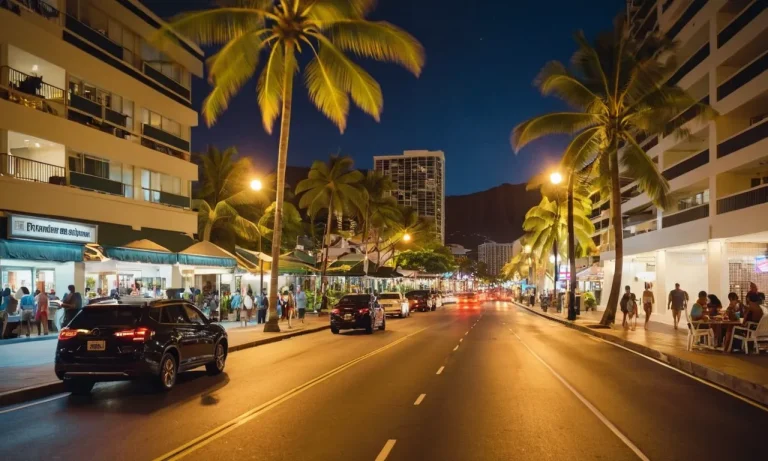When Does Vrbo Charge Your Card?
If you’re booking a vacation rental through Vrbo, you may be wondering exactly when they will charge your credit or debit card. Getting hit with an unexpected charge at the wrong time can throw your finances out of whack, so it’s understandable to want the details on Vrbo’s billing practices.
If you’re short on time, here’s a quick answer: Vrbo charges your card at different times depending on the rental agreement. Expect a charge when you book, again around your check-in date, and maybe even after you check out if there are damages or extra fees.
Initial Card Charge for the Rental Deposit
When booking a vacation rental through Vrbo, it is important to understand when and how your card will be charged. The initial card charge typically occurs when you make a reservation and pay the rental deposit.
This deposit is a security measure for the property owner and is usually a percentage of the total rental cost.
Amount charged
The amount charged for the rental deposit varies depending on the property and the rental agreement. It can range from a few hundred dollars to several thousand dollars for luxury properties. The exact amount should be clearly stated in the booking details and confirmed before making the reservation.
It is important to review this information carefully to ensure you are aware of the financial commitment required.
When the charge happens
The charge for the rental deposit typically happens at the time of booking. Vrbo will securely process your payment and hold the funds until the start of your stay. This ensures that the property owner has the necessary funds to secure your reservation and protects both parties in the event of cancellations or disputes.
Damage deposit policies
In addition to the rental deposit, some property owners may require a separate damage deposit to cover any potential damages during your stay. This is a common practice to protect the property and ensure its condition is maintained.
The amount for the damage deposit is usually specified in the rental agreement and is separate from the rental deposit. It is important to review the damage deposit policies and understand the terms and conditions before making a reservation.
It is worth noting that Vrbo acts as a platform connecting travelers with property owners, and each rental listing may have different payment policies. It is always recommended to carefully read and understand the terms and conditions of each individual property before making a reservation.
Final Payment Around Check-In
When booking a vacation rental through Vrbo, it’s important to understand when your card will be charged for the final payment. This article will provide you with all the information you need to know about Vrbo’s payment process.
Remaining rental balance
Once you’ve found the perfect vacation rental on Vrbo and submitted a booking request, you’ll typically be required to pay a deposit upfront to secure your reservation. The remaining balance, which includes the rental fee, any additional fees, and taxes, is usually due closer to your check-in date.
It’s important to note that the timing of the final payment can vary depending on the host’s payment policies. Some hosts may require the full payment upfront, while others may allow you to make the final payment closer to your check-in date.
Timing of the charge
Vrbo will charge your card for the final payment according to the host’s payment policies. Typically, this charge will occur a few days before your check-in date. This allows the host to ensure that the payment has been processed and confirmed before you arrive at the vacation rental.
It’s always a good idea to review the host’s payment policies before making a reservation, as they may have specific requirements or deadlines for the final payment. This will help you avoid any potential issues or delays in the payment process.
What it covers
The final payment covers the remaining balance of your vacation rental, which includes the rental fee, any additional fees (such as cleaning fees or pet fees), and taxes. It’s important to review your booking details and invoice to understand exactly what is included in the final payment.
If you have any questions or concerns about the charges, it’s recommended to reach out to the host directly or contact Vrbo’s customer support for assistance. They will be able to provide you with any necessary clarification or help resolve any payment-related issues.
For more information about Vrbo’s payment process, you can visit their official website.
Possible Charges After Checkout
When booking a vacation rental through Vrbo, it’s important to understand the possible charges that may apply after your stay. These charges can include damages and fees, and it’s crucial to be aware of when these charges might appear and how to dispute them if necessary.
Damages and fees
One possible charge that you may encounter after your stay is related to damages and fees. If any damages occur during your stay, such as broken furniture or stained carpets, the owner or property manager may charge you to cover the cost of repairs or replacements.
Additionally, there may be fees associated with cleaning, late check-out, or other specific rental policies. It’s essential to carefully review the rental agreement and any additional terms and conditions to understand what charges may apply.
When charges appear
Charges for damages and fees typically appear on your credit card statement after your stay. The exact timing can vary depending on the property owner or manager, but it’s common for these charges to be processed within a few days to a week after checkout.
It’s a good idea to keep an eye on your credit card statement during this time to ensure that any charges are accurate and in line with the rental agreement.
Disputing charges
If you believe that you have been charged incorrectly or unfairly for damages or fees, it’s important to take action and dispute the charges. Start by contacting the property owner or manager directly to discuss the issue and provide any evidence or documentation that supports your case.
If you are unable to resolve the matter with the owner or manager, you may need to escalate the dispute to Vrbo customer support. They can help mediate the situation and potentially assist in resolving any payment disputes.
Remember, it’s always a good idea to maintain open communication with the property owner or manager throughout your stay and promptly report any damages or issues that arise. This will help prevent misunderstandings and ensure a smoother resolution if charges need to be addressed.
Conclusion
Knowing Vrbo’s billing practices helps you budget for your vacation properly and avoid finance fees from a maxed-out credit card. Now that you know they charge your card a few times before, during, and even after your trip, you can plan accordingly.
The deposit comes out when you book, the remaining balance around check-in, and extra fees may hit post-stay if you incurred damages or other charges. Understanding the timeline prevents surprises down the road.








